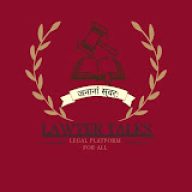Important Questions of Constitution For Allahabad Entrance exam: –
Table of Contents
ToggleQuestions: –
1. A person unlawfully detained may question his detention:
(a) By writ of Habeas corpus
(b) By writ of Certiorari
(c) By writ of Mandamus
(d) By writ of Prohibition
2. A writ of mandamus can be issued:-
(a) Only against subordinate courts
(b) Against any public official or authority
(c) Only against tribunals
(d) Only against the executive bodies
3. Which of the following Articles of the Constitution of India was repealed by the Constitutional (Forty Fourth Amendment) Act, 1978?
(a) Article 30
(b) Article 31
(c) Article 31A
(d) Article 30A
4. Which of the following Articles does not deal with the minorities’ constitutional rights and safeguards?
(a) Article 38(2)
(b) Article 46
(c) Article 14
(d) Article 13
5. Habeas Corpus writ power of the High Court is under which Article of the Constitution?
(a) Article 32
(b) Article 226
(c) Article 154
(d) Article 201
6. Which writ literally means ‘what is your authority’?
(a) Quo-Warranto
(b) Prohibition
(c) Mandamus
(d) Habeas Corpus
7. The writ of Certiorari can be issued against:-
(a) A person exercising purely administrative powers
(b) Against a Minister
(c) Against any Quasi-Judicial or Judicial authority
(d) None of the above
8. The Supreme Court of India was established in:
(a) 1950 (b) 1949
(c) 1962 (d) 1980
9. “Yatho Dharmasthatho Jaya” is the motto of-
(a) C.B.I.
(b) Supreme Court of India
(c) Delhi Police
(d) None of the above
10. Under which article of the Constitution a distinguished jurist can be appointed a Judge of the Supreme Court?
(a) Art. 124(2) (b) Art. 127
(c) Art. 128 (d) Art. 130
Answer: –
- A
- B
- B
- D
- B
- A
- C
- A
- B
- A
- Dying declaration
- Bihar APO Exam Date 2026: Prelims Scheduled for July 15 – Check Official Notification
- UP APO Exam Date 2026 Announced: Check UPPSC Official Calendar & Schedule
- Indian Army JAG 124 Notification 2026: Vacancies, Eligibility, and Apply Online
- Official IBPS 2026-27 Calendar Out: Check SO Law & RRB Scale II Dates
